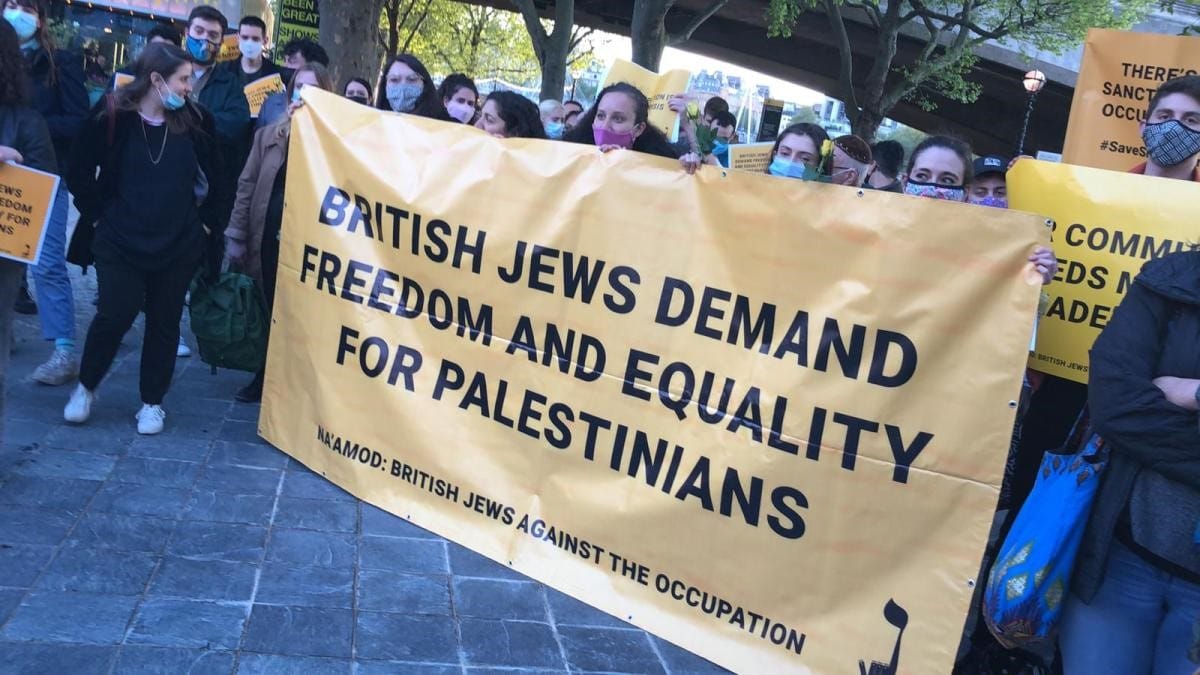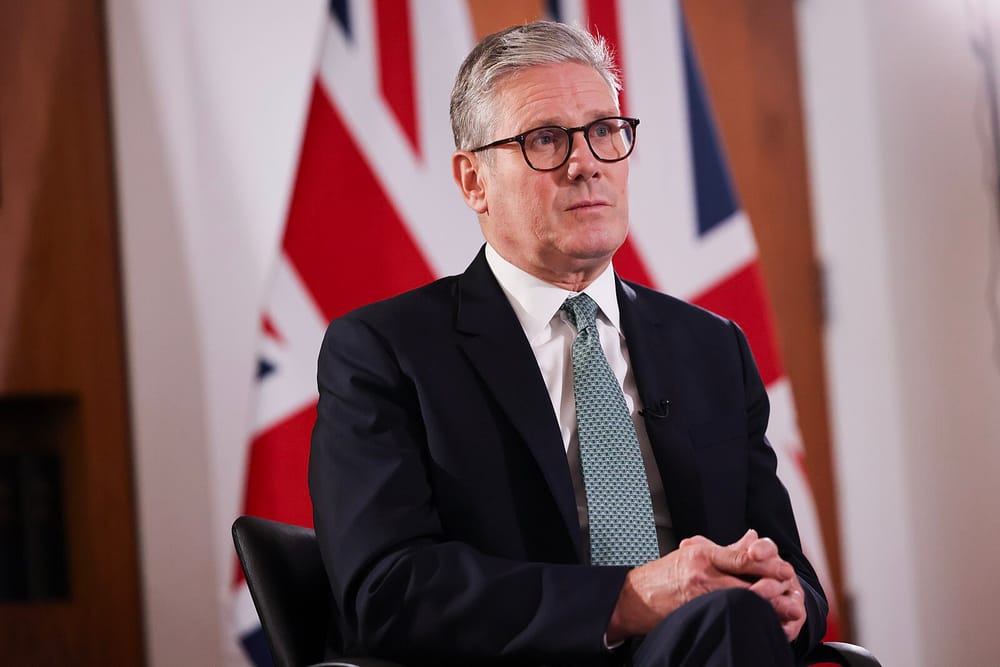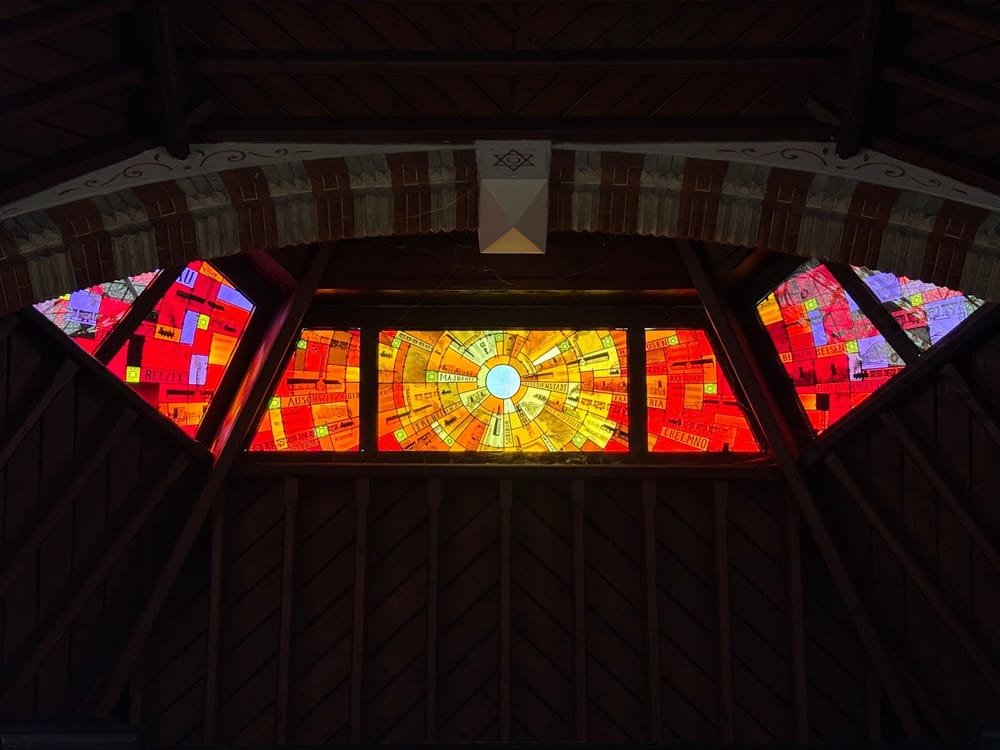Zoomers are breaking up with Zionism
With its 75th anniversary approaching, Israel is enjoying less support among young British Jews than their parents and grandparents.

There’s no shortage of evidence that, like their American counterparts, young British Jews are less supportive of Israel than their parents and grandparents: this came through clearly in City University’s detailed study of British Jewish attitudes to Israel commissioned by Yachad in 2015, while more recent polling by the Jewish Policy Research Institute and Jewish News-Survation has confirmed the trend.
As the anti-government protests in Israel spread to London in March, the United Jewish Israel Appeal, which funds most of the Israel programming on offer to British Jewish youth, warned its supporters that “so many young people in our community, who we seek to inspire with a love of Israel, are struggling with their relationship with Israel.” In reality, for an increasing number of young British Jews raised within mainstream communities, there isn’t a struggle to speak of: they’re over it.
For the last three years, I’ve been studying dissent over Israel and Zionism among British Jews belonging to Generation Z (for my purposes, people born around the turn of the millennium and currently aged between 20 and 30) – a generation that, I have discovered, is committed to being Jewish but on terms they define.
The young people I’ve spoken to for my research have mostly been raised within mainstream Jewish communal life, across all the major denominations. They are Jewishly connected, Jewishly educated and Jewishly concerned. But with regard to Israel-Palestine they are developing, or have developed, non-, post- or anti-Zionist thinking. Or to put it another way, they’re attempting to reclaim and reshape a Jewish identity that looks a lot less nationalistic than the one they’ve inherited.
Sadly, attempts to understand this have so far been highly prejudicial and ill-informed. Ben M. Freeman’s book Jewish Pride, for example, models much of what is wrong with popular conceptions of young Jewish dissent over Israel. With an analysis that is mostly a mixture of caricature and armchair pathology, Freeman merely offers us the concept of “internalised anti-semitism” to describe young Jews who reject Zionism – an update on the trope of the “self-hating Jew”. Freeman’s solution – teaching “Jewish Pride” – is equally misguided. Gaining a more accurate picture of what motivates this generation of dissenters is thus crucial to dispel myths and challenge prejudices, and will enhance our understanding of broader trends emerging in Jewish identity and practice.
Gen Z is hardly the first generation of Jews to express concern about Jewish nationalism – that story is as old as Zionism itself. Yet there is much that distinguishes this generation of dissenters from their forebears.
Seeds of discontent
Numerous studies tell us that Gen Z values diversity and social justice to a higher degree than their elders, and are the most race- and gender-inclusive of any generation studied since the second world war. But they are far from hopeful about the future: the authors of Gen Z, Explained found that they can be “deeply pessimistic about the problems they have inherited” and of the ability of their elders and established institutions to fix them.
What bearing might this have on Gen Z Jews, and specifically their relationship with Israel? Firstly, it’s worth bearing in mind that Gen Z has come of age as the diplomatic horizon of a two-state solution has been superceded by a rights-based approach that recognises the apartheid reality on the ground in Palestine-Israel.
Closer to home, young Jews in the UK have grown up with Holocaust remembrance being a central component of a new postcolonial British identity shaped by the governments of Tony Blair, Gordon Brown and David Cameron. While welcome in many respects, it has meant that a more difficult national conversation about Britain’s colonial (and sometimes genocidal) past has been slow to emerge.
As Gen Z headed to university, however, they encountered the dominance of decolonial thinking in arts and social science departments as well as within student unions. This worldview makes it increasingly difficult to understand the Jewish national project as a straightforward response to anti-semitism or justified by the Holocaust. Other narratives and experiences of Zionism rooted in its settler-colonial character could no longer be ignored.
Finally, it is important to consider the influence of the bitter arguments over anti-semitism and how to define it during Jeremy Corbyn’s leadership of the Labour Party. As Gen Z Jews were entering adulthood, they were witnessing a newly self-confident and assertive Jewish communal leadership ready to define the community less as a religious minority (as it had done since the mid-19th century) and more as an ethnic group whose identity and rights were in danger of being ignored. Condemnation of Corbyn and the championing of the International Holocaust Remembrance Alliance definition of anti-semitism became the defining features of Jewish political expression – but did this also sow the seeds for scepticism?
Communally rooted
My research is still in its early stages, but several themes are already emerging. Firstly, the young adults participating in the study have largely grown up as members of synagogues and Jewish youth movements, and are firmly rooted in Jewish communal life. When asked whether they see themselves being involved in organised Jewish life in five years’ time (belonging to a synagogue, being involved in Jewish charity work, campaigning on issues of Jewish concern, etc), 96% responded affirmatively.
And yet, my research participants believe overwhelmingly that the mainstream Jewish community in the UK is in denial about what is happening to the Palestinian people. They also want to see Jewish communal leaders take seriously the human rights reports into apartheid policies and practices in Israel, and they support the right to boycott as a form of legitimate political protest.
One notable finding has been the transformative experience of meeting and talking directly to ordinary Palestinians – especially in Palestine-Israel, but also in the UK. The impact of these encounters cannot be understated for this generation: 30-year-old Adam, who grew up attending a United Synagogue in Manchester, told me: “It was seeing the injustices […] in front of your eyes. However much I’d learnt from books or watching films, it was a very different experience to be there.”
Daniel, 23, from a Reform background in London, told a similar story about his visit to the Palestinian neighbourhood of Sheikh Jarrah in occupied East Jerusalem: “As I was standing there, there were Palestinians being harmed […] it was very much a moment of clarity.”
For Anna, 24, from an Orthodox upbringing in London, it was working with an educational charity helping Palestinian families in Israel that has had the most powerful impact: “I think there’s an element of encountering Palestinians [in the West Bank] that still allows the kind of liberal Zionist delusion to continue: ‘Well, if there’s a two-state solution, everything will be okay’. It’s only through understanding the perspectives and experiences of Palestinian citizens in Israel that I think has given me the insight and approach I now have.”
Solidarity over victimhood
Much like previous generations, Holocaust remembrance remains a central aspect of the Jewish identity of the young people I’ve spoken to. But they’re determined to rethink how that remembrance is understood and to use it in ways that promote solidarity with other oppressed groups.
Jacob, 20, from a Masorti background, explained his discomfort with the Holocaust discourse that he learned growing up: “The prevailing idea that to prevent another Holocaust you need Israel is an idea that I feel very unconvinced by. I struggle with that idea because it ends up justifying one group’s suffering based on another’s.”
Anna, too, is trying to find more productive forms of Holocaust remembrance: “I want to think about how we can construct a memory culture that includes both [Jews and Palestinians], because I think […] the way that we currently learn about [the Holocaust], with Israel as our redemption, is an awful thing.”
There are queer correlations coming through in the research as well. For example, Suzanne, 26, who identifies as non-binary, explained: “Once you find yourself outside of normative power structures it [leads] you to think about other people and other struggles […] I see it as connected.”
Indeed, there is no single route being chosen by my research participants to express their reshaped and reimagined Jewish identities. While some will stick with the institutions that have raised them, others are choosing to create alternative, nondenominational congregations or diasporist collectives, and others still are rooting their Jewish identity firmly within the framework of social and political activism.
The communal establishment has its head in the sand about the major political shift happening among young Jews. Dismissing them as fringe or self-hating is lazy; it is clear from my research that these young Jews are deeply thoughtful, often much more so than their elders. Anglo-Jewry has much to learn by listening to them. ▼
Robert Cohen is a PhD student at King’s College London. To take part in Robert’s research, complete his anonymous survey or drop him a line at [email protected].
Author
Robert Cohen is a PhD student at King’s College London.
Sign up for The Pickle and New, From Vashti.
Stay up to date with Vashti.



